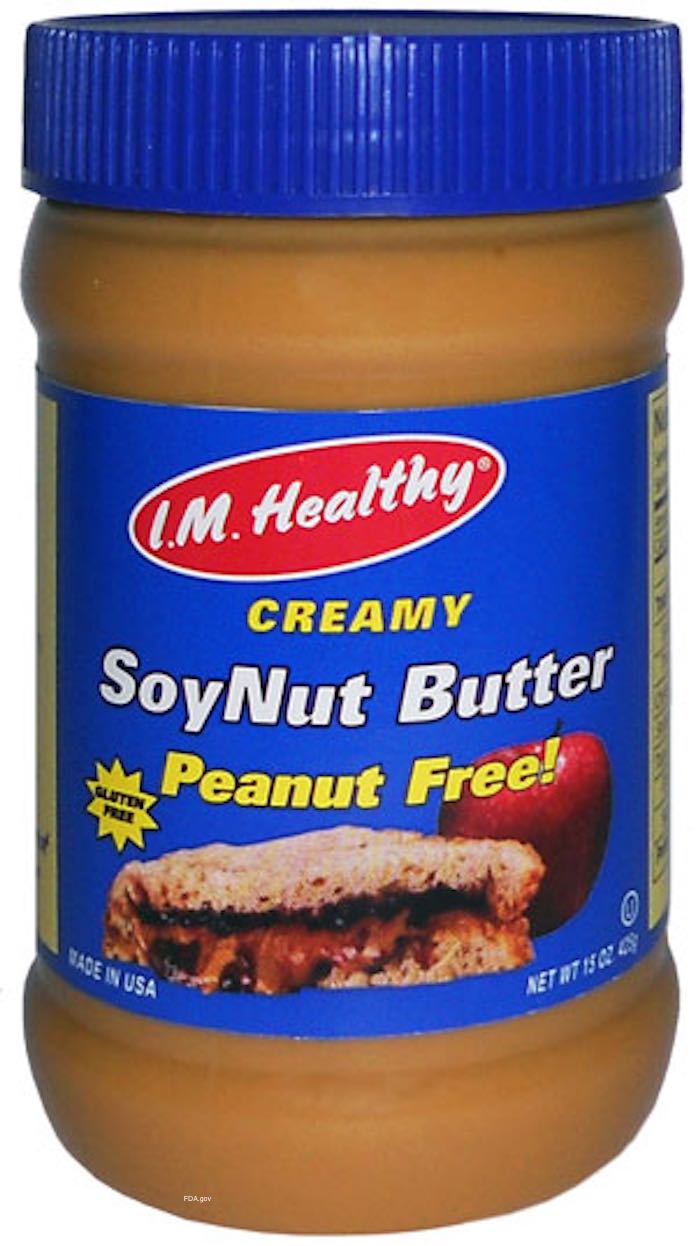The Journal of Pediatrics has published a study on the 2017 soy nut butter E. coli O157:H7 outbreak that sickened 32 people, mostly children, in 12 states. That outbreak was linked to I.M. Healthy SoyNut Butter, which is used as a substitute for peanut butter in many daycare settings and schools around the country.

Twelve of the patients in this outbreak were hospitalized. Twenty-six of these illnesses occurred in children under the age of 18. Eight of these children developed hemolytic uremic syndrome (HUS), a type of kidney failure that is a complication of a Shiga toxin-producing E. coli infection. One adult also developed that complication.
Twenty-five of the case patients ate the same brand of soy nut butter or attended schools or daycare centers that served the product. The scientists in this study identified three illness subclusters, including a child care center where person-to-person transmission may have occurred.
The patients lived in Washington state, Oregon, California, Florida, Missouri, Illinois, Wisconsin, Virginia, Maryland, New Jersey, and Massachusetts. Illness onset dates ranged from January 4, 2017 to April 18, 2019.
The FDA found the outbreak strain of E. coli O157:H7 in opened containers of I.M. Healthy SoyNut Butter taken from homes of patients in California, Oregon, and Washington. California officials discovered E. coli O157:H7 in unopened containers of I.M. Healthy SoyNut Butter taken from retail stores. Whole genome sequencing showed that the bacteria in these products were closely related to isolates from patients.
One company, Dixie Dew Products, made the soy paste used in the products. FDA inspections uncovered serious food safety issues at that company’s facility. I.M. Healthy and Dixie Diner’s Club brand Carb Not Beanie Butter, and 20/20 Lifestyle Yogurt Peanut Crunch Bars were recalled, which the study states “likely prevented additional illnesses.” Dixie Dew Product’s food facility registration was pulled on March 27, 2017.
The scientists concluded that quick identification of Shiga toxin-producing E. coli infections by healthcare providers is critical to identifying and ending these outbreaks. They also stated that manufacturers of ready to eat products have a responsibility to prevent foodborne illness outbreaks, and that daycare centers and schools need to stress hygiene and food safety rules to prevent person-to-person transmission of pathogens.




